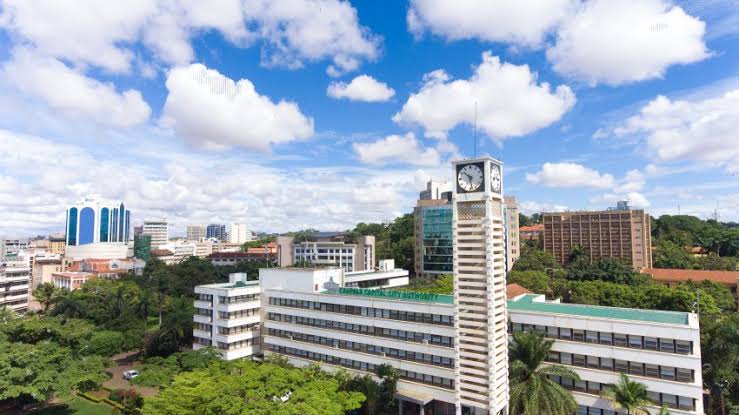Kaggala village in Bukerere ward, Goma division, Mukono Municipality, faces a pressing issue: rising insecurity. Recent incidents of theft, property destruction, and the general fear of crime have put the community on edge. Yet, despite these concerns, a scheduled village meeting intended to discuss the matter saw dishearteningly low attendance. As I joined the few who showed up, it became evident that the lack of participation, especially from the wealthier residents, was becoming as much of a challenge as the insecurity itself. The village and ward Local Council chairpersons expressed frustration, lamenting the disinterest of those who could help address the problem most effectively.
The meeting had been a crucial opportunity to brainstorm solutions to the rising insecurity, which many residents had been complaining about for weeks. However, without substantial input from the wealthier and more influential community members, any ideas or plans discussed would be limited in scope and impact. This lack of involvement underscored a deeper issue: the growing gap between different social groups within the village.
The Root of the Problem: Disconnection and Disinterest
One of the main reasons the meeting was sparsely attended was the disinterest of the wealthier residents, who, in theory, had the most to lose from insecurity in the area. These individuals often live in large, fenced properties with heightened security, and may feel removed from the issues faced by the rest of the community. Many have their own security measures in place—such as private guards or surveillance systems—and may not see the immediate need to engage in communal efforts to improve overall security.
This sense of separation has bred a complacency that could spell disaster for the village’s social fabric. As the village grows and more affluent individuals settle there, the gap between them and the rest of the community appears to widen. Those who have the resources to act as catalysts for change are often the most absent from critical discussions, leaving the rest of the community to fend for itself.
Yet, insecurity does not discriminate. Eventually, crime affects everyone, regardless of their wealth or status. In places like Kaggala, where the village is close-knit, social cohesion is essential to solving collective problems. Without it, individual efforts to protect property are temporary solutions, while the root causes of insecurity—such as unemployment, youth disenfranchisement, and lack of communal vigilance—remain unaddressed.
Rekindling Community Spirit and Involvement
To overcome this challenge, it’s crucial to rebuild the bridge between different socioeconomic groups in the village and rekindle a shared sense of responsibility. Addressing both the insecurity and the disinterest in community meetings requires a multi-faceted approach that focuses on communication, education, and collaboration.
- Targeted Outreach and Tailored Messaging
The first step is understanding the motivations of the wealthier residents and crafting messages that speak to their interests. While they may not feel as immediately impacted by the insecurity as others, they certainly have a stake in the long-term safety and development of the village. Emphasizing how crime in surrounding areas can eventually spill over and disrupt their own lives could motivate them to engage. Community leaders and Local Council officials could organize targeted outreach programs, including personal invitations to the next meeting, home visits, or small group discussions that appeal directly to these individuals.
Moreover, the messaging needs to highlight not only the problems but also the potential for change. If the wealthier residents see that their input and resources can have a real impact on improving the security and prosperity of the entire village, they may be more inclined to participate.
- Creating Incentives for Participation
People often respond to incentives. One way to encourage greater attendance at village meetings is to offer tangible benefits for those who come. For instance, meetings could feature expert speakers who provide valuable information about home security, property investment, or even community health. For the wealthier residents, the promise of networking opportunities with other local leaders and influencers might act as an additional draw. By turning meetings into events that offer social and practical value, the village could see a significant uptick in engagement.
- Strengthening Local Leadership and Accountability
Another critical factor is the role of local leadership. The Local Council chairpersons, though frustrated by the lack of turnout, could seize this opportunity to re-energize their efforts. By holding those in positions of power and influence accountable—through both public and private channels—they could create an environment where participation in community affairs is seen as a civic duty, not an optional activity. This might include follow-up meetings that review the progress of security measures, encouraging a sense of responsibility and shared ownership of the village’s future.
- Leveraging Technology and Media
In today’s world, digital communication is an invaluable tool for community mobilization. Many of the wealthier residents might be more reachable through platforms like WhatsApp, Facebook, or email, rather than traditional flyers or posters. Creating a dedicated online group where residents can share information, security tips, and updates might foster more ongoing engagement and allow those who cannot attend meetings in person to stay involved. Moreover, local journalists could highlight the issues of insecurity in village newsletters or websites, ensuring that the topic remains in the public eye.
Building a Stronger Kaggala: A United Front
At the core of this issue is a need for unity. In Kaggala village, like many others, insecurity can only be fully addressed when the community comes together, transcending divisions of wealth and status. By actively involving the wealthier residents in the process—through targeted outreach, meaningful incentives, and strong local leadership—the village can take significant steps toward creating a safer, more cohesive environment.
The journey will not be easy, but as we work to engage all members of the community, we can rebuild trust and collaboration. Ultimately, in doing so, we can create a village that is not only secure but also thriving—where everyone, regardless of their wealth, feels invested in the wellbeing of their neighbors.
Mike Ssegawa is a veteran journalist and the current Deputy RDC Mukono.
Do you have a story in your community or an opinion to share with us: Email us at Submit an Article









